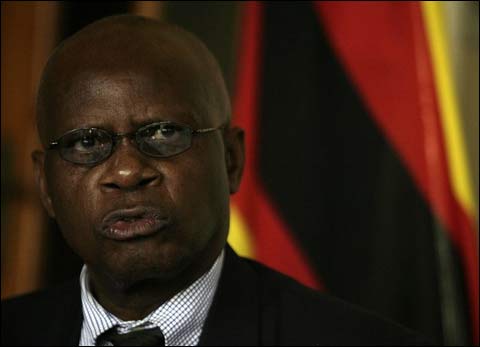
Government policy formulation should not be a preserve of a ruling party, but involve various stakeholders if the policies are to be a success, the South Korean Ambassador to Zimbabwe Kwang-Chul Lew said on Wednesday.
Dumisani Sibanda Assignments Editor
The sentiments come at a time when Zanu PF, which had a landslide electoral victory in the July 31 polls, has vowed to single-handedly implement policies contained in its manifesto to turn around the economy.
On Tuesday, Cabinet approved an economic blueprint, the Zimbabwe Agenda for Sustainable Socioeconomic Transformation (Zim Asset) presented by Finance minister Patrick Chinamasa after the document had been discussed and approved by the ruling party Zanu PF’s politburo.
Delivering a paper on the South Korean development model at the University of Zimbabwe under the Institute of Development Studies public lecture series, Lew said government policy was too important to be left to a ruling party.
“South Korea has a tradition of democracy and pluralism,” he said.
“The polices should not be from the ruling party only. Policy-making should involve an adjustment of opinion, it should involve the process of arguing and input from a number of groups.”
Lew said it was also important to ensure that policies were properly implemented if a government was to propel its country to success such as that being enjoyed by South Korea, which he said was now in the top 15 economies in the world.
- Chamisa under fire over US$120K donation
- Mavhunga puts DeMbare into Chibuku quarterfinals
- Pension funds bet on Cabora Bassa oilfields
- Councils defy govt fire tender directive
Keep Reading
“Policy is one thing, but implementation is another,” he said.
“You can come up with a beautiful design or policy (on paper), but implementation of the policy and its impact is another.”
Lew said his country developed agriculture in the 1960s and then used that as a springboard for industrialising the nation.
He was, however, quick to point out that the world economic crisis of 1997 had taught South Korea that it could not operate as an economy in isolation and the country had subsequently embraced “globalisation and liberalisation”.
“Korea had a protectionist attitude at first, but now it has negotiated free trade agreements with the United States, European Union and some countries in Asia. It is now moving to have the same discussions with its neighbours Japan and China,” he said.
Lew said in the last six decades, Korea had grown from being one of the poorest countries in the world in 1948 to a global economic player on the basis of implementation of sound policies.
“The Republic of Korea’s agrarian transformation has been based on a favourable macroeconomic policy environment, clear and transparent property rights, technology, market access and price policy,” he said.
“Proper policy is a necessity for proper development. Accurate and thorough implementation of policy is most important.”
Lew said Korea used agricultural development as a springboard to industrialisation, but during the initial stages of the development it pursued a “government interventionist policy” and export-led growth.
The ambassador said the agricultural development was accompanied by a “transparent process of property rights”.
Following the land reform programme there had been concern over land ownership rights and some economists believe this contributed to food security problems in Zimbabwe.










